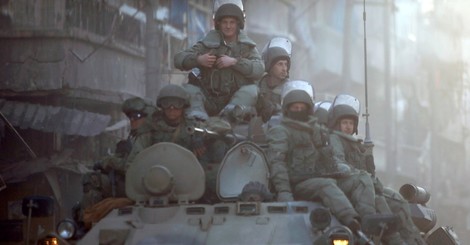Your podcast discovery platform
Curious minds select the most fascinating podcasts from around the world. Discover hand-piqd audio recommendations on your favorite topics.

piqer for: Globalization and politics Global finds
I am an Australian freelance journalist focussing on conflicts, politics, and warzones around the world. I have been working as a journalist for over 5 years, having reported from Australia, Germany, China, Egypt, Palestine, and Ukraine. I am especially interested in the way that new technologies are being used in conflict zones in unexpected and often disturbing ways. During my time working as a journalist, I also co-founded open-source war reporting site Conflict News.
Russia's Favorite Mercenaries
Mercenaries have existed for as long as war has; however, the concept of using these forces as a low-cost way to project state power is relatively new. Blackwater, operating alongside US forces in Iraq, was notorious for human rights abuses and the so-called 'privatization' of war.
Yet this approach did not stop with the West. In recent years, Russia too has begun to employ this tactic through a mercenary outfit known as Wagner Group. First in Ukraine, and then later in Syria, the group fought alongside Russian forces, often conducting operations that were too politically sensitive for regular troops. Now the group has appeared again, this time in the Central African Republic, fighting for unclear aims and leaving a trail of dead journalists in its wake.
Wagner seems to exist to push the envelope of what Moscow can achieve in new environments. The central African adventure epitomizes this strategy. It allows Russia to enter a foreign, largely hostile environment with minimal risk, and to exploit both political and economic opportunities there.
Writing for the Atlantic, Neil Hauer takes an in-depth look at the history of Wagner Group and its actions around the world. He examines not just the role the group plays in executing Russian foreign policy, but also the motivations of its soldiers who fight (and often die) so far from home.
Wagner, and groups like it, appear to be just the latest tool of power projection from governments around the world, and it would be naive to expect that more state mercenaries do not follow in their footsteps.
Stay up to date – with a newsletter from your channel on Globalization and politics.
